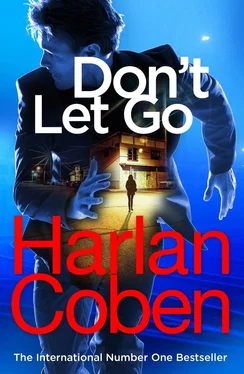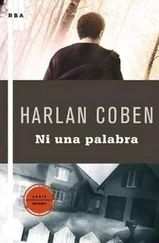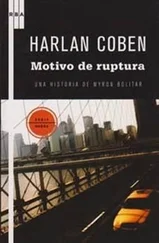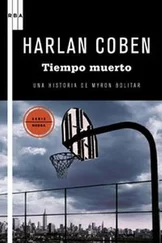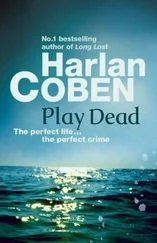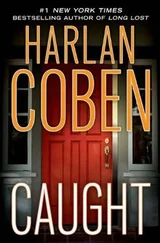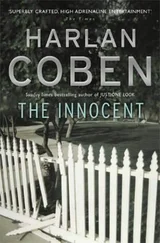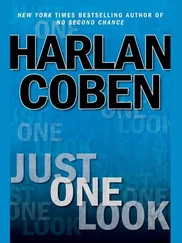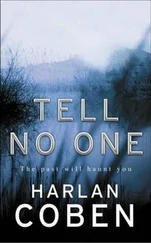I stay silent. I can feel the guilt coming off him.
“So these guys” — he gestures to the court — “think Hank is a weirdo. They don’t want him here.” He sits up. “Well, too bad. Hank is going to play if he wants to play. He’s going to play with us, and he’s going to feel welcome.”
I give it a moment. Then I ask, “Do you have any idea where he might be?”
“No. We still don’t... we don’t really talk, except on the court. Hank and I, I mean. A lot of us go to McMurphy’s after we play, you know, for a few pitchers and some pizza. I used to invite Hank, but when I did, he would actually run away. You’ve seen him walking around town, right?”
“Yes,” I say.
“Same route every day, you know. Same time. Creature of habit. I guess that helps. Routine, I mean. We finish here at nine o’clock, give or take. But if we go long, Hank still leaves at exactly nine. No good-bye, no explanation. He has an old Timex with an alarm. It dings at nine, he sprints away, even if it’s the middle of a game.”
“How about his family? Would he stay with them?”
“His mom passed away last year. She lived in that old condo development in West Orange. Cross Creek Point. His dad might be there now.”
“I thought his parents divorced when we were little,” I say.
On the court, someone cries out and falls to the ground. He wants a foul, but the other guy is claiming that he’s being a drama queen.
“They split up when we were in fifth grade,” David says. “His dad moved somewhere out west. Colorado, I think. Anyway, I think they might have reconciled when Mrs. Stroud got sick. I forget who told me that.”
The game in front of us ends when Myron hits a fadeaway jumper that kisses the backboard before dropping through the net.
David rises. “I got next,” he reminds me.
“Did you ever hear of the Conspiracy Club?” I ask him.
“No, what’s that?”
“Some guys in our class back in high school formed it. Hank was a member. So was my brother.”
“Leo,” he says with a sad shake of his head. “He was a good guy too. Such a loss.”
I don’t reply to that. “Did Hank ever talk about conspiracies?”
“Yeah, I guess. Nothing specific, though. He never made much sense.”
“Did he talk about the Path maybe? Or the woods?”
David stops and looks at me. “The old military base, right?”
I say nothing.
“When we were in high school, Hank was obsessed with that place. He would talk about it all the time.”
“What would he say?”
“Nutty stuff, that the government was running LSD testing out of it or mind-reading experiments, stuff like that.”
You would sometimes wonder the same kinds of things, wouldn’t you, Leo? But I wouldn’t call you obsessed. You said it, you had fun with it, but I don’t think you ever really bought into it. It seemed to me to be just a game to you, but maybe I misread your interest. Or maybe you were all in it for different reasons. Hank thought about big government plots. Maura liked the edge element, the mystery, the danger. You, Leo, I think you liked the comradery of the friends traipsing through the woods on an adventure like something in an old Stephen King novel.
“Yo, David, we’re ready to start!” one guy yells.
Myron says, “Give him a minute. We can wait.”
But they are all lined up and ready to play and there is a protocol here: You don’t make the group wait. David looks at me for permission. I nod that we are done and he can go. He starts to step toward the game, but then he turns to me.
“Hank is still obsessed with that old base.”
“Why do you say that?”
“The walk Hank takes every morning? He starts by hiking up the Path.”
Reynolds calls me in the morning. “I found the divorce attorney who hired Rex.”
“Great.”
“Not really. His name is Simon Fraser. He’s a bigwig partner at bigwig Elbe, Baroche and Fraser.”
“You reach out to him?”
“Oh yes.”
“I bet he was cooperative.”
“I bet you’re being sarcastic. Mr. Fraser won’t speak with me due to attorney-client privilege and subsequent work product therein.”
I frown. “Did he actually say ‘therein’?”
“He did.”
“We should be able to arrest him for that alone.”
“If only we made the laws,” Reynolds says. “I was thinking of going back to his clients to see if they would waive privilege.”
“You mean the wives he represented?”
“Yes.”
“A waste of time,” I say. These women won custody cases based in part on Rex’s DUI setup. They were not about to admit that. Their exes could use that illegality to reopen custody battles.
“Any ideas?” Reynolds asks.
“Might as well pay Simon Fraser a visit in person.”
“I think that too will be a waste of time.”
“I can go alone,” I say.
“No, I don’t think that’s a good idea.”
“Then we go together. It’s your jurisdiction, so you can approach him as a law enforcement officer...”
“... while you play the role of interested civilian?”
“It’s the role I was born to play.”
“When?”
“I have to make a couple of stops on the way, but I’ll be up before lunch.”
“Text me when you get close.”
I hang up, shower, get dressed. I check my watch. According to David Rainiv, Hank starts his walk up the Path every morning at exactly eight thirty. I park in the teachers’ lot, which gives me an unobstructed view of the Path. It’s eight fifteen. I flip around the radio and land on Howard Stern for a while. It’s eight thirty now. I keep my eyes on the Path. No one approaches.
Where is Hank?
At nine, I give up and head to my second stop.
The shelter Ellie runs caters mostly to battered families. I meet her at one of the transitional residences, an old Victorian located on a quiet street in Morristown. This is a place for the battered women and children to hide from their abusers until we can figure out the next step, which is usually something better but not what anyone would consider desirable.
There are very few big victories here. That’s the tragedy. What Ellie does feels like emptying an ocean with a tablespoon. Still, she wades into the ocean tirelessly, time after time, day after day, and while she is no match for the evil in a man’s heart, Ellie makes the battle worth it.
“Beth Lashley took her husband’s name,” Ellie tells me. “She is now Dr. Beth Fletcher, a cardiologist in Ann Arbor.”
“How did you find that out?”
“It was harder than it should have been.”
“Meaning?”
“I contacted all her closest friends from high school. None keep in touch with Beth, which surprised me. I mean, she was pretty social. I reached out to her parents again. I told them we wanted to get Beth’s address for reunions and that kind of thing.”
“What did they say?”
“They wouldn’t give it to me. They said to mail anything pertinent to them.”
I don’t know what to make of that. But it’s not good. “So how were you able to track her down?”
“Through Ellen Mager. Do you remember her?”
“She was a year behind us,” I say, “but I think she was in my math class.”
“That’s Ellen. Anyway, she went to Rice University down in Houston.”
“Okay.”
“So did Beth Lashley. So I asked her to call the Rice alumni office and see if as a fellow alum she could get any information on her.”
That, I have to admit, is genius.
“Anyway, she got an email address with the Fletcher last name at the University of Michigan Medical Center. I did a little googling to find out the rest. Here’s her office number.” Ellie hands me a slip of paper.
Читать дальше
